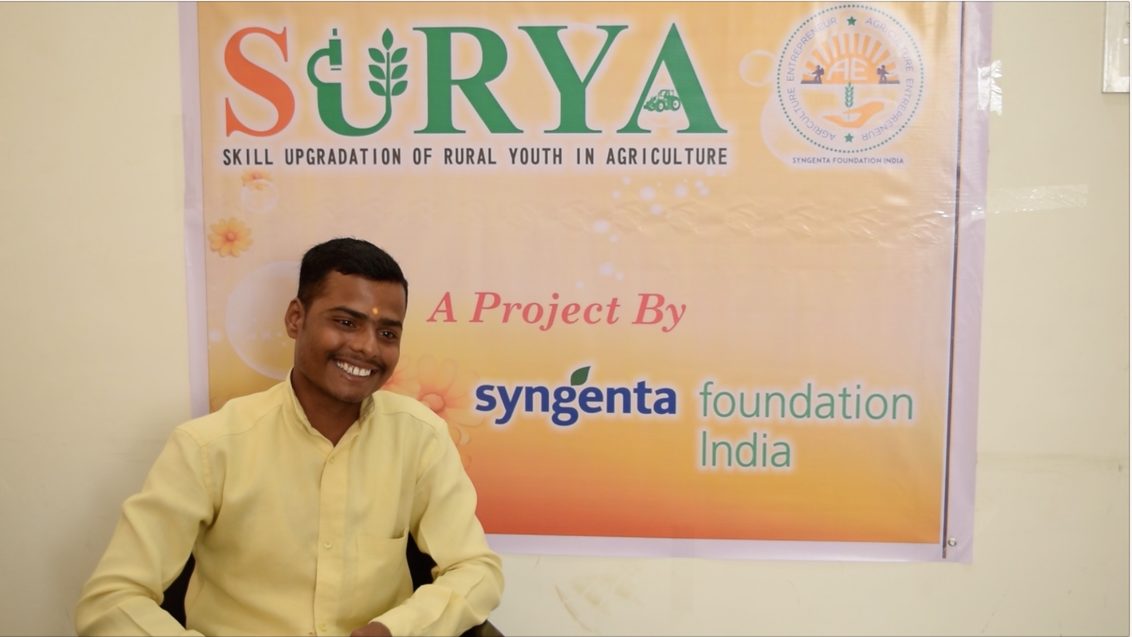Practical skills beat theory in boosting farmer incomes

Like many young graduates in India, 22-year-old Deepak Patil struggled to find a job after completing his degree. Back at home with his family on their smallholding in India’s western Maharashtra state, his future was uncertain and, while he had always been interested in agriculture, he had no faith in farming as a means of earning a living.
But then he heard about Syngenta Foundation India’s (SFI) Agricultural Technology Assistant (ATA) programme, a 45-day residential course that trains rural youths in best agronomy practices alongside business skills and personal development. By improving their skills, the programme aims to make young people employable and to enable them to earn a premium for their ability and knowledge.
Deepak signed up, eager to become computer literate, to improve his agricultural knowledge, and to overcome his terror of public speaking. Soon he was soaking up practical, applicable knowledge and skills on input usage, micro-irrigation, water conservation and more and, to his delight and pride, secured a job soon after completing the course.
‘I’m a field officer with a local NGO,’ he explains. ‘My team and I work with 2,700 local farmers, giving them quality agronomy advice, supplying the best inputs, and linking them to markets.’
With water scarcity a constant in his home area, Deepak focuses particularly on micro-irrigation and feels a strong sense of achievement in being of help to the farmers. His efforts have resulted in an increase in their incomes of more than 20%.
Deepak has also outperformed other team members who have degrees in agriculture.
‘I think it’s because my suggestions are always very practical and can be implemented by local farmers without great cost,’ he says. His performance is being rewarded with a promotion that will see him lead a team of six with a higher salary. Already his earnings have enabled him to build a pukka house for his family.
His success has not gone unnoticed by other youngsters from his village, many of whom also found their education had left them ill-equipped for employment.
‘Many others from my village have now followed my lead and joined the ATA programme, says Deepak. ‘The information that we share with farmers has changed opinions about agriculture and now youth and farmers believe that agriculture can be profitable.’
Work of Syngenta Foundation India In this context
Syngenta Foundation for Sustainable Agriculture and Syngenta India Limited established Syngenta Foundation India (SFI) as an independent not-for-profit organization in 2005. From the outset, SFI’s mission was to have small and marginal farmers participate in agricultural development by improving their access to better seeds and other inputs, increasing their knowledge of agronomic practices, establishing ease of access to credit and providing systematic market linkages. The main objective has remained to educate small and marginal farmers on the latest developments suited to their local needs, and thus ultimately improve their income.
